The Importance of Frame Shape Numbers

We use the frame shape number for a few different things. The first thing we do with the frame shape number is to build the shape with the A and B measurements provided.
After we have done this, we will calculate the ED based on the new shape. Why do we do this?
Lets take this job for example. I have a +2.50 -1.50, with a 58 PD in a 53-21 Drill mount frame.
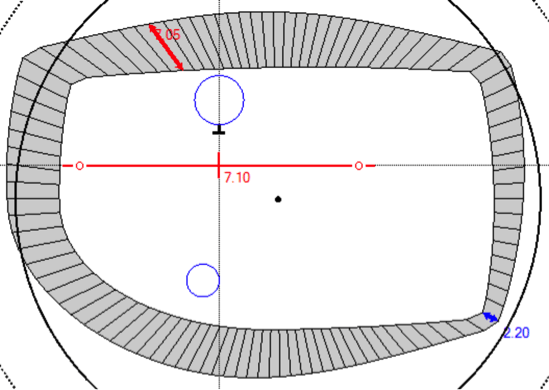
The image above was generated from running the job without a shape number, and having the computer generate a shape. Now, lets look at the job with Shape # 17.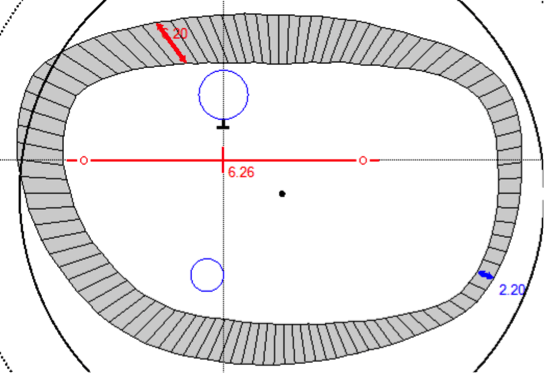
As you can see from this image, our center thickness dropped from 7.10 to 6.26. This is due to the fact that the system has a better idea of what the shape looks like. It can also more accurately calculate the edge thickness, as you will see in the next image.
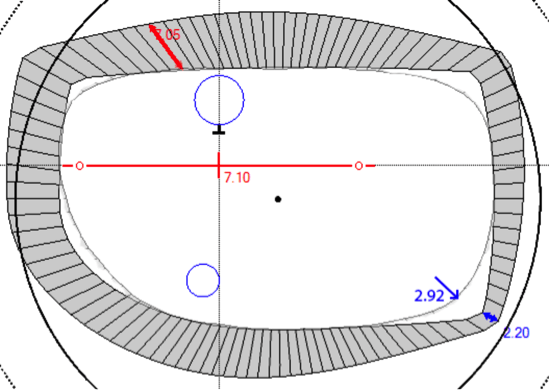
This image shows the actual shape inside of the computer-generated shape. The computer has calculated an extra 2 to 3 mm in the bottom, temporal corner than the actual frame has. So when we overlay the actual tracing, the minimum edge thickness will be 2.92 on the edge.
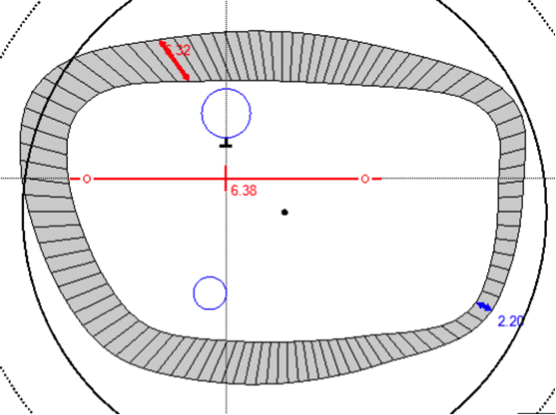
Looking at the job with the actual shape tracing, the shape number got us pretty close. With the actual tracing, our center thickness would be 6.38 instead of 6.26.
In the grand scheme of things we are producing a much better-looking lens with the frame shape number than without.
We eliminated ¾ of a millimeter off of the lens. It did come out a bit thin, but the 0.12 mm that we dropped from the thickness won’t cause you much of an issue. It would make our minimum edge 2.08 instead of 2.20mm.
The major reason for the thickness on this job is the plus power, and the decentration caused by with the larger eye size and relatively narrow PD.
Shape Numbers are much more important on plus lenses than minus lenses. In most cases all we need with minus lenses is an accurate A, B, ED, and DBL measurements. This is because the thinnest point on a minus lens is in the center.
Below is the frame shape number chart we provide our customers:
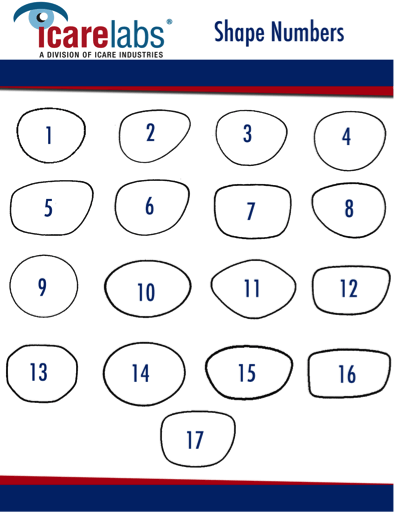
See our article “EDs: Friend or Foe?” for more information on measuring EDs.
Don't forget to check out our Resource Center to get all the latest availability charts, sales aids, and more!
